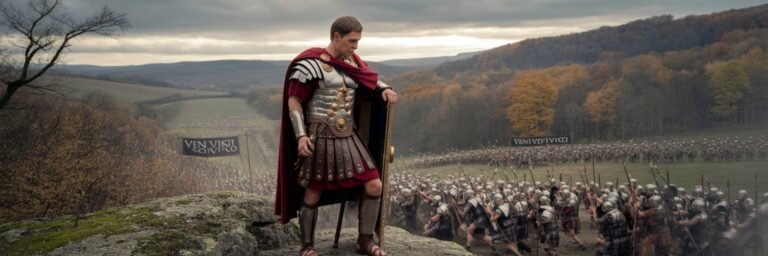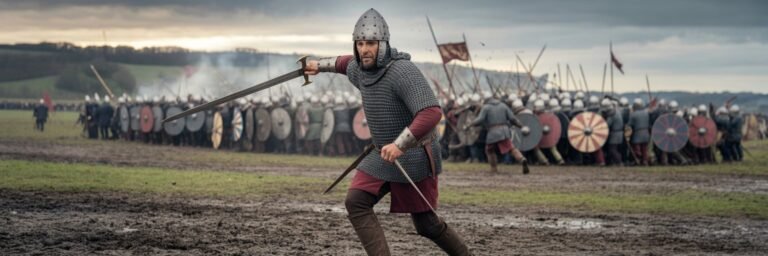INTRODUCTION
The rhythm of human history pulses with the echo of warfare – clashes and skirmishes inspiring speeches and utterances that have seared themselves into the collective consciousness. Military strategies and weapon developments have often dictated the trajectory of entire civilizations, plunging nations into existential battles or elevating them to unprecedented glory. The fear, valor, and desperation of those moments have been immortalized in the form of famous quotations, originating from battlefield heroes, revered leaders, and revolutionary thinkers.
HISTORICAL BACKGROUND
The era of warfare and weapons spans from the prehistoric period to the present age, with every epoch birthing its set of defining quotes. Our journey starts in ancient Greece, where Athenian statesman Pericles famously said, “Just because you do not take an interest in politics doesn’t mean politics won’t take an interest in you.” More than a simple bon mot, this was a poignant reminder of a citizen’s responsibility in democracy – a system dominant in the warfare landscape of that era.
In the medieval era of knights and castles, feudalism and chivalry gave rise to proclamations echoing honor and duty—the French heroine, Joan of Arc, purportedly declared, “I am not afraid… I was born to do this,” illustrating her unwavering mission towards her nation’s liberation.
THEORIES AND INTERPRETATIONS
Academic interpretations of these quotes offer a wealth of insights into their context and underlying intent. Historians like Thucydides, a renowned chronicler of ancient warfare, interpreted Pericles’ quote as a call to civic responsibility buoyed by the philosophy of the polis. However, more radical interpretations by thinkers like Foucault offer a Machiavellian reading, hinting at the inescapable grip of politics and power.
Joan of Arc’s quote is considered emblematic of her visionary leadership and unflinching commitment to her cause. While historian Edward James interprets it as a reflection of powerful religious conviction, the feminist historian Marina Warner analyzes it from a gendered perspective, seeing it as Joan articulating a spirited resistance to patriarchal norms of her era.
MYSTERIES AND CONTROVERSIES
Unsurprisingly, the realm of famous quotes from the era of warfare and weapons isn’t devoid of controversies and uncertainties. Quotes have often been falsely attributed or manipulated for political convenience. Keeping their cultural value and rhetorical power aside, the truth behind these quotes can prove elusive or contentious. Lenin’s alleged declaration, “The capitalist will sell us the rope with which we will hang them,” has sparked countless debates. Some suggest the statement is a fabrication, hinting at the West’s suicidal tendencies during the Cold War.
Similarly, Churchill’s dictum, “We shall fight on the beaches,” has been dissected for decades. Despite its iconic status, there remains a debate over whether the legendary prime minister’s motivational radio speech truly swung the tides of the battle during World War II.
SYMBOLISM AND CULTURAL SIGNIFICANCE
Renowned quotes such as these are never just sentences; they embody the human condition in crises, carrying tremendous symbolism and cultural relevance. When Hermann Göring blurted, “When I hear the word culture, I reach for my Browning,” he underscored the brutal realpolitik that defined Nazi Germany, where force routinely overpowered reason.
The iconic phrase “The only thing necessary for the triumph of evil is for good men to do nothing” has had contested attribution but is often ascribed to Edmund Burke. It remains a powerful symbol of apathy’s cost during global conflicts, urging societies to stand against malevolence rather than passively observing from the sidelines.
MODERN INVESTIGATIONS
Today, modern technology and research methodologies have enabled deeper explorations into these famous quotations from the era of warfare and weapons. Linguistic forensics, historical cross-referencing, and digital humanities approaches have enriched our understanding of these remarkable expressions.
Contemporary investigations confirmed the authenticity of General Sherman’s quote: “War is hell,” using audio restoration techniques on early phonographs. Meanwhile, academic debates continue around the real author of the quote: “Si vis pacem, para bellum” – If you want peace, prepare for war – questioning its association with Roman military writer Vegetius.
LEGACY AND CONCLUSION
These quotes aren’t mere historical trivia; they continue to mold our cognitive landscape within the modern era. Their underlying wisdom, cautionary tales, and rallying cries continue to echo through time, serving as inspirations or warnings for present generations.
The realm of famous quotes from the era of warfare and weapons offers a rich tapestry of human ingenuity, courage, resilience, and folly in the face of existential challenges. At their heart, they reflect the humanity that perseveres amidst turmoil—constantly resonating through time, remaining profound markers of our collective journey. And as the future threatens to become more tumultuous, their relevance seems set to amplify, keeping us anchored to historical wisdom in the whirlwind of progress.






